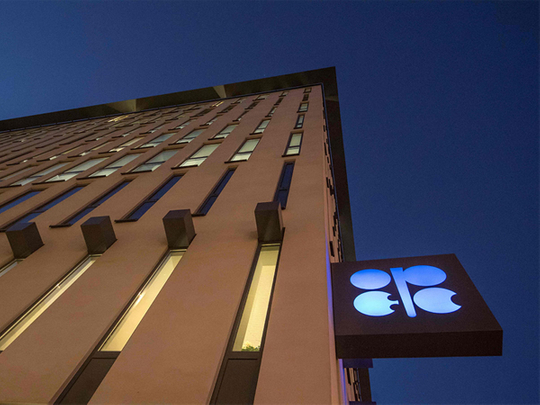
London: Algeria - which holds OPEC's rotating presidency - proposed moving the upcoming meeting between the cartel and its allies a few days earlier, to June 4.
Algerian Energy Minister Mohamed Arkab sent a message, seen by Bloomberg News, making the proposal to a WhatsApp group shared with fellow ministers. The date change would make it easier for producers to notify customers of any changes to their shipments, Arkab said.
The 23-nation OPEC+ coalition led by Saudi Arabia and Russia is undertaking record oil-production cuts to offset the loss in demand from the coronavirus crisis. At their forthcoming meetings scheduled for June 9 to 10, the alliance will decide whether to maintain the current cutback or ease it slightly as originally planned.
Oil producers and buyers typically agree to "nominations" early each month that set how much crude will be shipped the following month. Holding the ministerial meeting a few days earlier would allow producers to factor any new policy into the nominations, according to an OPEC delegate who declined to be identified.
It's unclear whether other OPEC+ nations will agree to the change, which would also mean moving the committee meetings that normally take place before a ministerial conference to later in the month. A previous initiative by Arkab to convene an emergency technical panel in late March foundered.
OPEC currently has an Economic Commission Board meeting scheduled for June 2-3, and a Joint Technical Committee to assess implementation of the current supply cuts on June 5.
The Organization of Petroleum Exporting Countries and its partners have committed to curb output by 9.7 million barrels a day, or about 10% of global supply. Group leader Saudi Arabia and its fellow exporters in the Gulf are adding extra voluntary cutbacks of just over 1 million barrels a day in June.
The current agreement allows the coalition to relax the reductions to about 8 million barrels a day. Yet with oil prices still near $35 a barrel - far below the levels most OPEC+ nations need to cover government spending - the group could decide to keep going with the full cutback, to try and prop up the market.












